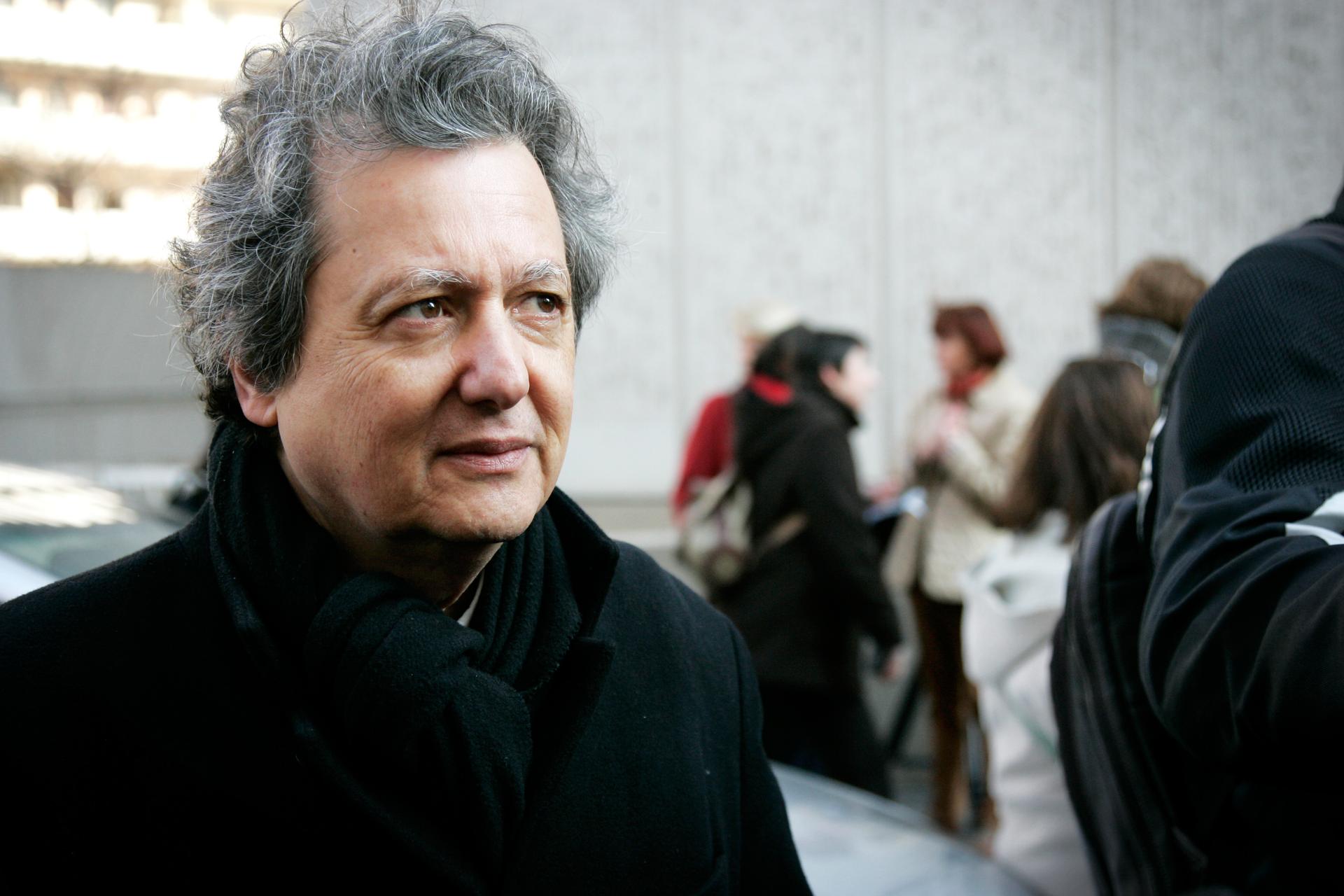French far-right leader Marine Le Pen has kept a relatively low profile over the last 12 months. Unlike other populist party leaders in Europe, she hasn’t condemned government-imposed lockdowns or spouted anti-vaccine conspiracy theories.
As French President Emmanuel Macron faced mounting public anger over the country’s high death toll from the coronavirus, Le Pen appeared to struggle to find her political voice.
In recent weeks, that’s all changed and the National Rally leader is back in the headlines.
Related: In Germany, fighting against extremism starts at school
A TV debate between Le Pen and the government’s Interior Minister Gérald Darmanin last Thursday raised eyebrows in France, not because of Le Pen’s performance but because of comments made by her opponent.
Darmanin, who has expressed an uncompromising commitment to France’s secular values, accused Le Pen of not taking enough of a hard-line stance against Islamist extremism. Even Le Pen herself appeared taken aback. Only a couple of weeks ago, she had proposed a ban on Muslim headscarves in all public places in France.
Related: Why Canada may designate the Proud Boys a terrorist group
The TV debate was widely seen as Le Pen’s opening shot for a run at the presidency next year.
In 2017, she performed disastrously in a TV debate opposite Macron in the runup to the last presidential elections, but this time around, the interior minister seems to have given Le Pen an unexpected favor, said Philippe Marlière, professor of European politics at University College London.
“[Macron] was constantly trying to outbid Le Pen, trying to be even more right-wing than Le Pen is on immigration and on Islam, and I think this is really terrible because Darmanin made her look good that day.”

“He was constantly trying to outbid Le Pen, trying to be even more right-wing than Le Pen is on immigration and on Islam, and I think this is really terrible because Darmanin made her look good that day.”
While Le Pen may have been surprised by the comments, it is no revelation in France that Macron’s government is moving further to the right.
Three recent terrorist attacks in France have seen the French president pushing through a law aimed at tackling Islamic extremism that many human rights groups say is an infringement of religious freedoms.
His appointment of hard-liner Darmanin as interior minister in a cabinet reshuffle last year was further indication of Macron’s direction. On the night of the TV debate, Le Pen told Darmanin that she had read a recent essay he wrote on Islamic separatism and said “apart from a few inconsistencies, I could have put my name on it.”
As President Macron’s La République en Marche party moves farther to the right, Le Pen has tried — publicly, at least — to rid her party of its extremist elements.
Changing its name from the National Front to National Rally and expelling the party’s co-founder, her father Jean-Marie Le Pen, is all part of the optics.
But Marlière says for many French people, Le Pen can never escape her father’s legacy.
Related: Greek court ruling against Golden Dawn could be model
“The Le Pen dynasty, father and daughter, the daughter is more palatable. But the father had a terrible reputation. The daughter does better, but I don’t think she’s particularly popular. And the left absolutely hates her.”
In spite of the antipathy of left-wing voters, Le Pen is doing well in the polls. Recent opinion polls put her within a couple of percentage points of Macron if a presidential election were to be held today. One poll even placed her ahead of the president.

But Marta Lorimer, postdoctoral research associate at the University of Exeter in Britain who studies the far-right in Europe, says it’s early days yet.
“I think her recent doing better in the polls is largely down to the fact that at the moment, she’s one of the few candidates that we know will be running. And the other reason is that the campaign hasn’t quite started yet.”
Early polls in the lead-up to the 2017 presidential election also had Le Pen performing well, but as the campaign continued, her ratings dropped.
Winning the public vote is not Le Pen’s only challenge. Her party finances are said to be a mess. She settled a lawsuit with a Russian company last year after failing to pay back a loan they provided in advance of her previous presidential campaign.
Last week, she was back in the courts due to accusations of breaking hate speech laws. In 2015, Le Pen tweeted out three gruesome images of ISIS killings. One of the photos was the body of American journalist James Foley, who was abducted and murdered by ISIS in Syria.
Related: Europe’s far-right stands behind Trump in US 2020 election
Le Pen faces charges of circulating “violent messages that incite terrorism.”
She argues that the trial is politically motivated and is just another symbol of how the establishment is out to get her.
Far-right researcher Lorimer says the trial might actually play into Le Pen’s hands.
“To an extent, this case can speak to her narrative that, you know, the elite, including the judiciary, is against them and really is doing its best to destroy the National Rally’s electoral prospects.”

The National Rally party faces further challenges. Many of its members lack political experience. The party has been tainted by a series of controversies over the years, said Pierre Haski, commentator with French public radio, France Inter. Even if she wins the presidency, Haski said, many wonder if the party is actually up to the job of running the country.
“[Le Pen] has not really attracted experienced and quality politicians around her. There’s a huge turnover. Does she have an experienced number of people to take over finance, defence and other issues that are central to the administration? She has not proved that she has.”
“She has not really attracted experienced and quality politicians around her. There’s a huge turnover. Does she have an experienced number of people to take over finance, defense and other issues that are central to the administration? She has not proved that she has.”
Presidential elections are not until next year and other candidates will emerge in the coming months. But many believe that President Macron is hoping it will be Le Pen he faces once again in the final round.
Related: Is there a ‘Nazi emergency’ in the German city of Dresden?
Le Pen is, in many ways, “Macron’s favorite enemy,” Haski said.
In other words, voters will choose anyone but Le Pen.
But Marlière, the professor of European politics, believes Macron is playing a dangerous game.
“You do not cynically bet on an alleged weaker opponent, the far-right, because you don’t want to face a center-left or center-right candidate. You’re playing with fire.”
One of the key reasons Le Pen is doing so well in opinion polls is because her opponent, Macron, is doing badly. His pandemic approach has been seen as incoherent, and he faces an impending economic crisis.
Marlière said Macron’s failures and the lack of credible candidates from the left could see France ending up with a far-right president, almost by default.
“France could be sleepwalking into voting for the far-right. Not because it wants to, but because there’s so much resentment and distrust with regards to mainstream parties and candidates, Macron included, that suddenly Le Pen wins. And no one saw it coming.”
Our coverage reaches millions each week, but only a small fraction of listeners contribute to sustain our program. We still need 224 more people to donate $100 or $10/monthly to unlock our $67,000 match. Will you help us get there today?
